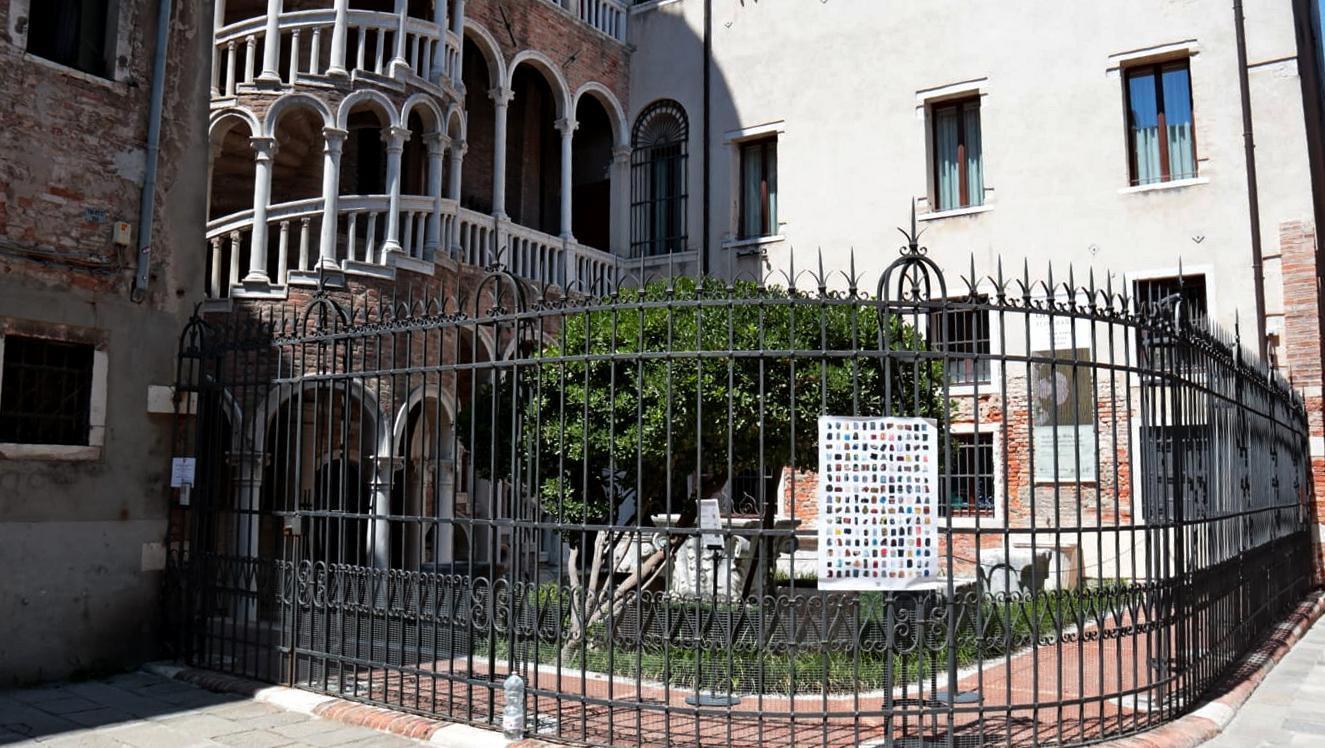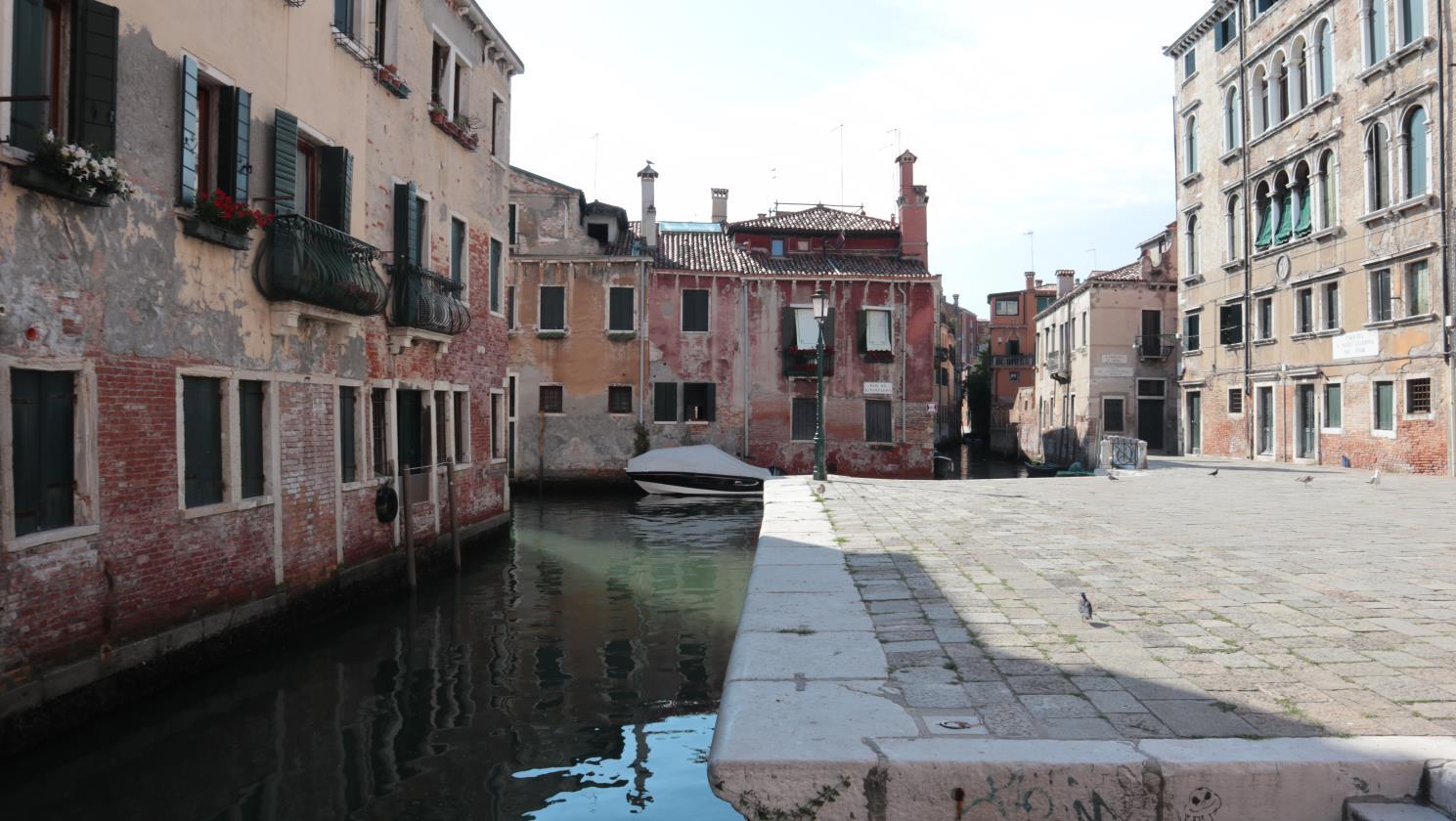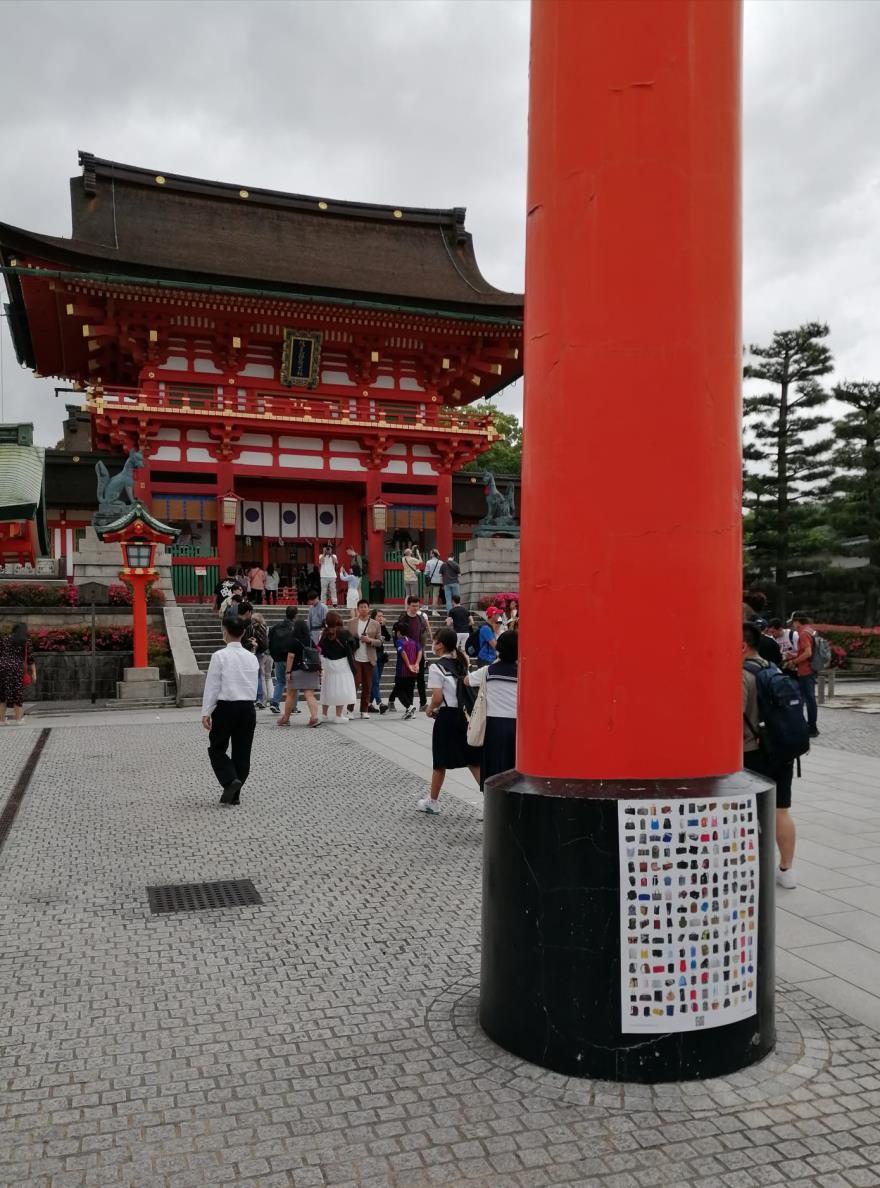
DISTANT SUFFERING XXII | i.d. of inequality
special edition: for Venessia | pro-Venice website work: A1 poster with the paraphernalia of traveling
two QR-codes | title | name artist print on 135 gr. half matt paper
for Núria Bofarull | friend, curator and photographer & Rinus Roepman | friend, artist and designer both in their ways wonderful patrons of the arts
Mass tourism destroys the social structures of places that enjoy the special attention of tourists.
Tourism pollutes and destroys things.
Tourism destroys exactly what attracts it.
Ilja Leonard Pfeijffer | Dutch novelist







Nel nostro mondo globalizzato si possono notare numerosi contrasti politici: ricchi - poveri, bianchi - neri, nord - sud, ecc. Negli ultimi anni, queste contraddizioni si sono espresse sempre più chiaramente anche in termini di mobilità. Soprattutto nel mondo occidentale, gli spostamenti hanno assunto forme estreme con l'aumento del turismo e la globalizzazione delle imprese, dei centri di ricerca, delle università, ecc. a vocazione internazionale.
La forza trainante di questa internazionalizzazione, il neoliberismo, si manifesta nella libera circolazione delle persone, dei beni, dei servizi e delle informazioni, in breve nella mobilità sfrenata. Guardando a questa mobilità, le sue dinamiche sono, a dir poco, a doppio taglio. Da un lato, il flusso di migranti (per motivi di lavoro) viene frenato, mentre a un'élite benestante e in gran parte "dalla pelle bianca" vengono concesse sempre più libertà. Questa libertà - come già detto - si esprime, tra l'altro, in un'industria turistica globale di cui questa élite approfitta. Questo turismo distrugge le strutture sociali dei luoghi che godono di particolare attenzione da parte dei turisti. Il turismo inquina e distrugge le cose. Il turismo distrugge proprio ciò che lo attrae, afferma la scrittrice olandese Ilja Leonard Pfeijffer.
La globalizzazione delle multinazionali richiede anche un'estrema mobilità di persone e merci. Lo stesso vale per l'internazionalizzazione delle università, che offrono all'élite degli studenti una parziale formazione all'estero e un'esperienza lavorativa. In questo modo, gli studenti hanno un vantaggio sul mercato del lavoro internazionale.
Questa mobilità contrasta nettamente con la necessaria fuga dei migranti dalla guerra e dalla povertà. Per loro non c'è un'accoglienza calorosa, come quella che attende gli occidentali ovunque. Non ci sono infrastrutture in cui sentirsi al sicuro, né benefici fiscali, ma innumerevoli pericoli e difficoltà e criteri di ammissione senza prospettive. La loro mobilità è limitata al massimo e ci viene venduta in termini di "accoglienza nella regione". Mentre la realtà si esprime in campi profughi degradanti.
La mobilità, insomma, è attualmente uno degli esempi più evidenti di privilegio. Il manifesto mostra una delle poche somiglianze tra questi viaggiatori molto diversi tra loro, ovvero i loro bagagli. La differenza sostanziale sta nel contenuto di queste valigie, borse e zaini.
2021 | W.F.T. van Houtum
In our globalized world, there are many political contra-dictions: rich - poor, white - black, north - south, et cetera. In recent years you have also seen this contradiction increasingly clearly expressed in mobility. Especially in the western world, travelling has taken extreme forms with the rise of tourism, and the globalization of internationally oriented companies, research centres, universities, et cetera.
The driving force behind this internationalization, neo-liberalism, is expressed in the free movement of people, goods, services and information, in short: of unrestrained mobility. When we study that mobility, its dynamics are at least ambiguous.
On the one hand, the flow of (labor) migrants is being held back, while a prosperous elite is getting more and more freedoms.
As stated, this freedom is reflected, for example, in a global tourism industry used by this elite.
Globalization of multinationals also requires extreme mobility of people and goods. This also applies to the internationalization of universities that offer a
student elite partial foreign education and work experience. In this way they take a lead on the international labour market. This mobility contrasts sharply with the necessary escape from war and poverty of migrants. There is no warm welcome for them, as western people can expect everywhere. No infrastructure in which they feel safe, no tax benefits, but countless dangers and hardships and hopeless admission criteria. Their mobility is restricted as much as possible and sold to us in terms of 'reception in the region'. While reality expresses itself in degrading refugee camps.
In short, mobility is currently one of the clearest examples of privilege.
The poster shows one of the few similarities between these different travellers, namely their luggage. The poignant difference is in the contents of these suitcases, bags and backpacks.
2020 | W.F.T. van HoutumSince 2013, by means of the ongoing art-series DISTANT SUFFERING, the Dutch artist Hans Overvliet (Leiden, 1952) investigates the role of the media in their representation of (military) violence. This, in the context of themes as perception, memory and identity formation.
Overvliet uses a various range of media, symbols and codes, bringing together dichotomies like beauty and violence, refinement and brutality, the sublime and the vulgar.
As a reporter, Overvliet was an eyewitness to the events in the Middle East during the 1980s. Of course these experiences resonate in DISTANT SUFFERING. So aspects of power, politics, exclusion, censorship and the connection between artist, artwork and viewer infiltrate his multifaceted conceptual oeuvre.
MarthaJager, curator Vleeshal in Middelburg about the oeuvre: The dedication to art as a relational verb is central to Overvliet's work. On the one hand, the balance between poetry and criticism is special, so that the work never becomes bitter or pedantic, while at the same time the dialogue with the viewer is actively maintained.
It is a tender form of activism that moves and urges action and also continuously questions the role of art.
Elements of DISTANT SUFFERING were exhibited in the Netherlands, Belgium, Pakistan, England, Italy, the Czech Republic, Denmark, Lebanon, Germany, the U.S.A. , France and Sweden.
Hans Overvliet was born in Leiden in 1952; he lives in Middelburg and works in Vlissingen, both in the province of Zeeland in the South-West of the Netherlands.
Next to his art-work he is, together with his wife Willy van Houtum, the founder and every day guardian of the 27-year old space for contemporary art: ruimteCAESUUR.
Here you’ll find his extended portfolio. Here you’ll find a kind of summary of his oeuvre. Here you’ll find the catalogue of i.d. of inequality
DISTANT SUFFERING XXII | i.d. of inequality

